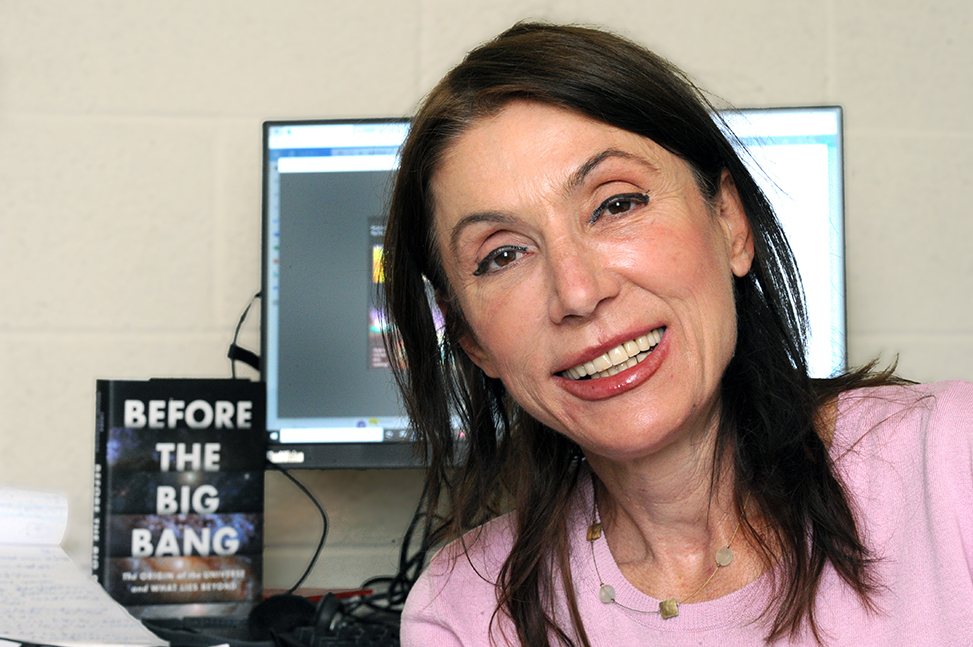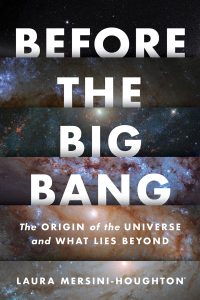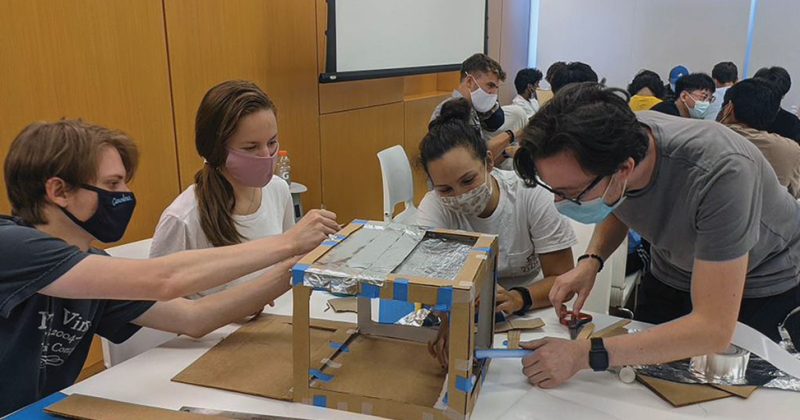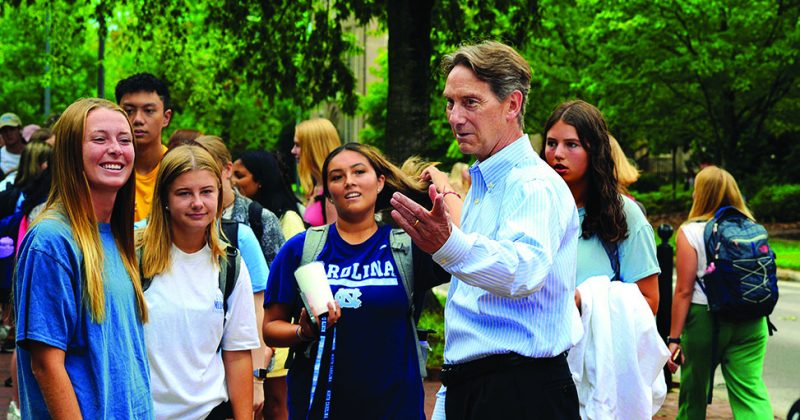
UNC cosmologist Laura Mersini-Houghton blends the personal and the scientific in her new book. “What is there beyond the horizon of the universe?” she asks. “Once we test those theories, the cosmos becomes more beautiful and fascinating than ever.” (photo by Donn Young)
 What came before the Big Bang, and what exists outside of the universe it created? UNC cosmologist Laura Mersini-Houghton’s new book explores her journey in pushing boundaries.
What came before the Big Bang, and what exists outside of the universe it created? UNC cosmologist Laura Mersini-Houghton’s new book explores her journey in pushing boundaries.
Do you ever gaze at the night sky and feel wonder at the vastness of the universe? That’s the feeling Laura Mersini-Houghton evokes in her new book, Before the Big Bang: The Origin of the Universe and What Lies Beyond (HarperCollins, 2022).
Mersini-Houghton, a professor of theoretical physics and cosmology at UNC, walks readers through her theory of the multiverse and how scientific tools are being used to look beyond the limits of our own universe. Her newest book weaves together a memoir of her early life in communist Albania with her life’s work in calculating how our universe came to be. She also explains how her theory of the multiverse — the concept that multiple universes exist at once — fills in gaps that go unanswered if only a single universe exists.
“We know for certain through data that our universe is only 13.8 billion years old. It’s a big number, but not that big. So, it’s fair to ask, what was there before 13.8 billion years ago?” Mersini-Houghton said, reflecting on what led her to cosmology. “Assuming there was nothing does not make sense. For various reasons, I thought, ‘Why would it all start with this universe?’”
Mersini-Houghton’s norm-shattering research suggests that we exist in a quantum landscape that is rippled like fabric. High and low points in this landscape — think of them as peaks and valleys — obscure a multitude of other universes which were linked at one time by quantum entanglement. Hidden from us, their existence can be guessed at by anomalies in our sky —oddities that would not exist if there were only one universe at the time of the Big Bang.
Her theory of the multiverse is founded upon extensive calculations using quantum mechanics and theoretical physics. In 2005 and 2006, in two papers called “Avatars of the Landscape I and II,” she and her collaborators made a series of predictions for yet-to-be-discovered anomalies in our sky that would exist only if the idea of quantum entanglement and the multiverse was right.
“I never thought I would know in my lifetime if we were correct or not,” she said. “But then we were very lucky: From 2007 until 2018, there was a series of astronomical data that found exactly what we predicted.”
Because this work received major attention in international media over the course of a decade, Mersini-Houghton thought about writing a book and telling her own story.
“I started contemplating the idea, and then pushing it aside,” Mersini-Houghton said. “Then there was a moment when I knew there was no escape; I had to do it.”
Despite the technical nature of the topic, Mersini-Houghton translates scientific concepts into easily understood analogies and metaphors.
“The only difference between the layperson and me is that I have some decades of training in equations, math and physics theories,” Mersini-Houghton said. “But otherwise, our imaginations are the same, and I share that with the reader.”
When readers come to the last page, Mersini-Houghton said she hopes they will be left with a deeper sense of the failures that scientists often experience during the discovery process before they press on to success. She also hopes the book will instill an appreciation for understanding the beauty of nature through science.
“What is there beyond the horizon of our universe? Once we start that line of questioning, we find data to test those theories, then the cosmos becomes more beautiful and fascinating than ever,” Mersini-Houghton said.
Mersini-Houghton’s book has been featured in BBC Inside Science, The Daily Telegraph, Forbes, The Washington Post, The Guardian and more.
Read additional books by College faculty and alumni, and look for our monthly “Bookmark This” feature on college.unc.edu.
By DeLene Beeland
Published in the Fall 2022 issue | Chapter & Verse
Read More

Minor teaches skills in engineering, entrepreneurship
An applied sciences and engineering minor that launched in fall…

Feed your reading habit: More books by College faculty and alumni
Inclusive Teaching: Strategies for Promoting Equity in the College Classroom…


